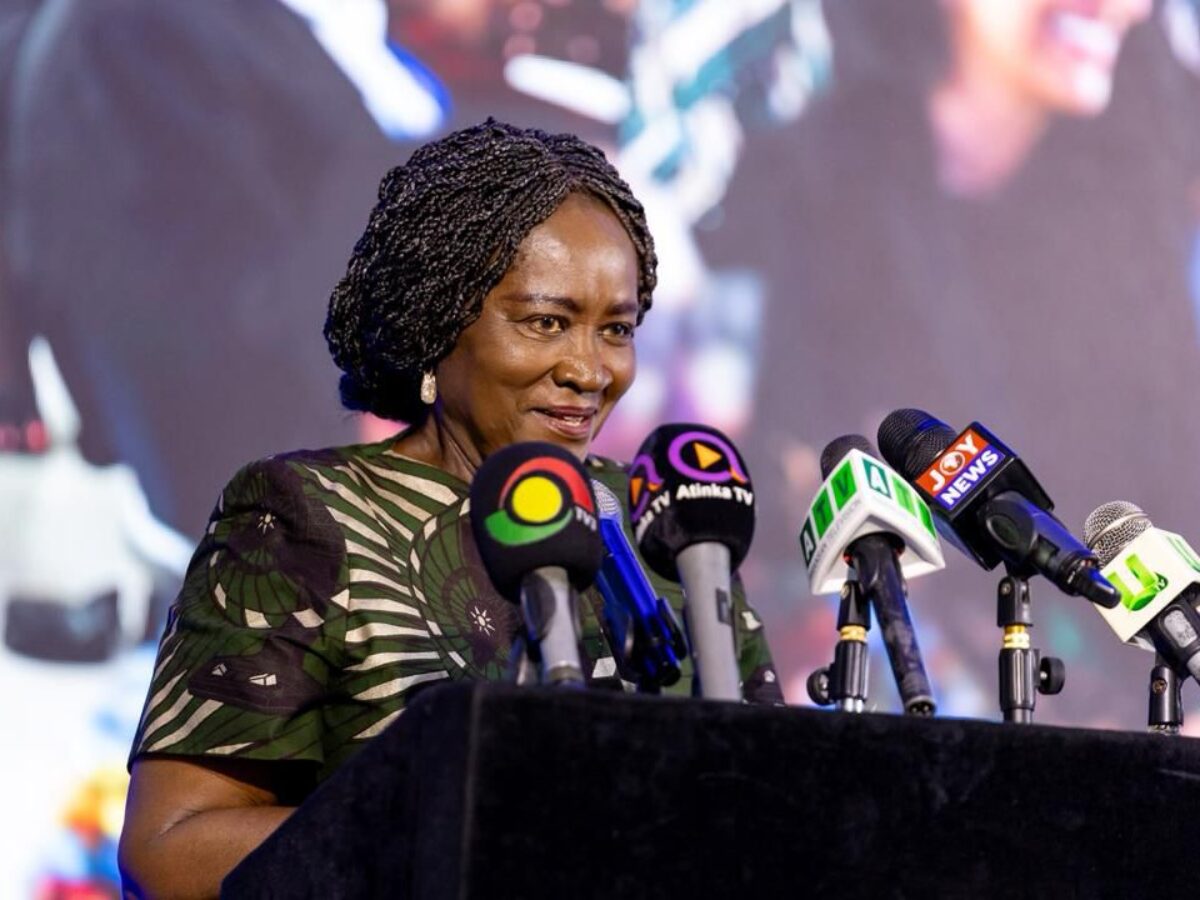By Stanley Kwabla Arku
Vice President Professor Naana Jane Opoku-Agyemang has called for a bold rethinking of development financing and civic action, urging a shift from dependence on aid to local ownership and citizen-led accountability. She made the call at the 3rd Ghana Civil Society Forum held at the GNAT Hall in Accra.
Speaking on the theme, “Reimagining Development Financing and Civic Action: Challenges, Opportunities, and the Way Forward,” the Vice President described the forum as timely, coming at a moment when traditional aid flows are dwindling and global development cooperation is under significant strain.
“We cannot rely on aid as the primary engine of development,” she cautioned. “Governments must now create enabling environments that boost domestic investment and mobilize new sources of financing, while placing citizens at the heart of decision-making.”
The Vice President lamented the growing limitations of external concessional financing, rising public debt, and shrinking fiscal space, which are compounding the pressures faced by developing economies. She noted that Ghana and other African countries are taking steps to broaden their tax base, deepen domestic resource mobilization, and reform public financial management systems.
“In 2025, the Ghana Revenue Authority has been tasked to increase annual revenue by 0.6 percent. We are abolishing withholding taxes, tightening oversight on gold smuggling, and rationalizing levies through the proposed 2025 budget,” she revealed.

Beyond money, Professor Opoku-Agyemang underscored the importance of power and agency in the development process. “Development finance is not just about money. It is about who has a voice, who sets priorities, and who decides how resources are used. That is why civic action must be central.”
She outlined four key commitments of the government:
1. Regulatory Reforms: Acknowledging the absence of a specific legal framework for CSOs, the Vice President announced that a Non-Profit Bill is currently in development and will be passed in close collaboration with civil society.
2. Structured Dialogue: She pointed to ongoing initiatives such as the Ghana National Economic Dialogue and the National Education Forum as examples of inclusive policymaking, with plans underway for the establishment of a National Governance Council.
3. Support for Local Philanthropy: The government aims to ease the registration process for NGOs and philanthropic groups, enhance tax incentives, and encourage homegrown solutions to social and economic challenges.
4. Citizen Trust and Accountability: With mechanisms like town halls, budget hearings, and open government partnerships, she stressed the need to rebuild trust between the state and the people.
The Vice President also highlighted the opportunities ahead. Ghana’s youthful population, the African Continental Free Trade Area (AfCFTA), and the digital economy were cited as key drivers of future development.
“With nearly six in ten Ghanaians under the age of 25, we must invest boldly in education, digital skills, and platforms for youth-led civic action,” she said, calling on civil society to become partners in this journey.
Professor Opoku-Agyemang urged stakeholders to forge a new social contract for development built on shared accountability, co-investment, and decentralized power.
“Let Ghana be a place where local initiative meets strategic investment, where accountability meets empowerment, and where development is done with ordinary people in mind,” she declared.
The forum brought together development partners, civil society actors, and government officials committed to shaping a future of inclusive, citizen-driven progress for Ghana and the continent.


